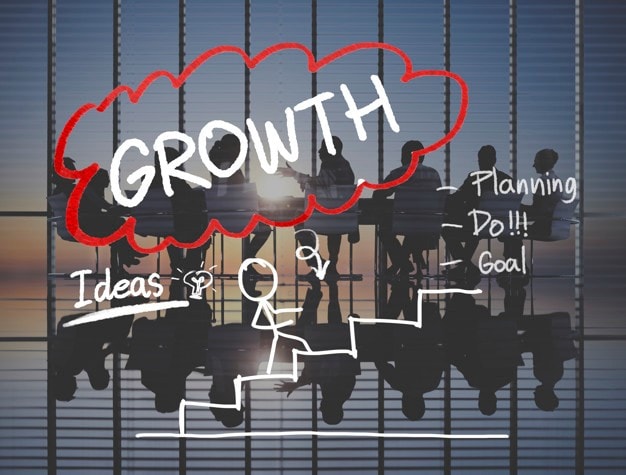
What is Organization Development? Objectives, Core Values, and Importance

Organization development is a methodical approach to enhance the efficiency of individuals and businesses It involves planning, aligning core values, implementing features, and realizing the importance of development The benefits outweigh the disadvantages, resulting in an improved process and overall success
Meaning of Organisation development
Organization development is a structured methodology aimed at enhancing the overall performance of an individual or an organization. Its primary goal is to address challenges that impede operational efficiency within the organization.the understanding that change is inevitable and that it is necessary to adapt to remain competitive. Additionally, OD emphasizes the importance of employee involvement in the change process, as well as the need for open communication and collaboration between all levels of the organization. By implementing OD strategies, organizations can improve their overall performance and achieve long-term success.
Team building
Career development
Training
Coaching
Change management
Innovation
E-learning
Organizational assessments
Talent management
Leadership development
Objectives of Organisation development
The objectives of Organisation development are as follows-
Have self-control
Strengthen inter-personal trust
Replacing formal authority lines with personal skill and knowledge
Increase interpersonal communication
Enhance employee satisfaction and enthusiasm
Stimulate employees so that they can express without fear
The decision by collective efforts
Increase support and trust amongst employees
Have self-direction
Encourage employee participation in decision-making
Encourage self-motivation
Developing viable solutions to relevant problems
Increase commitment
Making the individual align with the Organisation’s vision
Involve members in the process of implementation and analysis
Improve responsibility and ownership amongst employees during planning and execution
Core values of Organisation development
The core values of Organisation development are as follows-
Increasing the effectiveness of an Organisation in terms of its goals and objectives
Providing opportunities to act like people rather than only resources in the productive process
's goals towards their personal growth and development.
Creating a challenging and exciting work environment
Treating human beings as individuals who have complex needs which are essential to the job as well as life
Features of Organisation development
The features of Organisation development are as follows
Focused on the entire Organisation
is used to identify the areas that need improvement and develop strategies to address those issues. Through this program, employees are empowered to take ownership of their own development and contribute to the growth of the organization as a whole. The program also promotes collaboration and communication between different departments and levels of the organization, leading to a more cohesive and efficient workforce. Ultimately, the organization development program helps to create a culture of continuous learning and improvement, which is vital for the long-term success of any organization.
is utilized to analyze the various elements that affect the organization's functioning, including the people, processes, and technology. This holistic approach enables a comprehensive understanding of the organization's strengths and weaknesses, leading to the identification of potential areas for improvement. By conducting research and analysis of different work situations, the Organization Development process aims to develop practical solutions to enhance the overall performance of the organization.
Organization development is based on a system approach to encourage intergroup and interpersonal coordination and cooperation.
Problem-solving
is also an integral part of problem-solving within the Organisation development system. By involving individuals and teams in the process, it becomes easier to identify underlying issues and work towards finding solutions that are sustainable in the long run. This collaborative approach not only fosters a sense of ownership and commitment but also enhances communication and teamwork within the organization. Ultimately, problem-solving through the Organisation development system contributes to the overall growth and success of the organization.
The Organisation development process prioritizes group processes over individual activities, focusing on enhancing functional conflicts and interpersonal relationships through constructive group discussions.
Feedback is an essential feature of the Organisation development process as it offers vital information that helps to make decisions.
Learn through experience
Importance of Organisation development
The Organisation process requires individuals to adopt new behavioral patterns by learning through experience. This system allows for the development of behavioral concepts and the ability to make changes based on the situations and experiences faced. The flexibility of Organisation development allows for the selection of the appropriate resolution based on contingencies and solutions.
The importance of Organisation development is as follows-
Organization development improves the performance of the whole Organisation
Organization development increases the profitability of a business
by bridging the gap between the current abilities and the desired ones.
The Organisation development can increase the quantity and quality of products based on customer demands
The Organisation development process improves the financial position of the Organisation
The Organisation development process is essential because it enhances the market share
The Organisation development helps to achieve a competitive advantage over rival companies
The Organisation development concept enhances the image and visibility of an Organisation
Process of Organisation development
The process of Organisation development includes the following steps –
During the initial consultation, the consultant strives to fully understand the business entity's needs and expectations for their organizational plan. It is crucial for the consultant to have a clear understanding of what the organization hopes to achieve through the plan.
The meetings at the initial phases are very important for both the parties because it helps both the consultant and the business entity to arrive on the same page
Discovery
The Organisation development consultant must invest significant time and effort in thoroughly analyzing all pertinent information. This typically involves conducting key interviews, devising surveys, and organizing focus groups to gather and extract relevant data. It is crucial to identify both potential risks and opportunities in order to develop an effective plan. By taking these steps, the consultant can gain a clear understanding of the challenges faced by the Organisation and focus the development plan accordingly.
Some very relevant issues at this point are the resources that should be used for the planned change and future change activities.
Diagnosing
for intervention. Through this step, the organization can gain a comprehensive understanding of the current state of affairs and identify areas that require improvement. By analyzing the client system, the organization development consultant can develop tailored solutions to address specific issues and improve overall performance. This step is crucial in laying the foundation for the rest of the organization development process and ensuring that interventions are effective and sustainable.
The consultant presents the results of their research to the company head, armed with concrete data and statistics to support their findings. This approach ensures the delivery of substantive feedback rather than just speculation.
At this juncture, the consultant conducts a thorough gap analysis to highlight the disparities between the current state of affairs and the desired objectives. To address these gaps, the consultant presents a comprehensive roadmap that outlines actionable steps to bridge the divide. In the process of organizational development, it is imperative that feedback is provided on the analyzed information to facilitate progress.
.
Effective stakeholder cooperation is crucial during this stage of the Organisation development process. This is because the action steps involve a comprehensive approach that encompasses everything from group and individual coaching to team-building exercises. The success of this stage is pivotal, as it establishes a timeline for achieving milestones and designing interventions that align with the Organisation's objectives.
Assessment
Once the intervention plan has been implemented, it is important to evaluate the results of the change. If the desired outcome has not been achieved, it is necessary to investigate the underlying causes.
This step is necessary because adjustments will now have to be made to ensure the elimination of any obstacles in the process.
Success
Success is achieved when the desired change has been implemented, and efficient standards have been implemented to ensure a sustainable transition. The ongoing monitoring of these changes ensures their longevity. However, it's important to note that the market is constantly changing, and organizations must be prepared to handle any issues as they arise. It's essential to allow for evolution and regularly evaluate the progress of the organizational development process. It's recommended to wait at least nine to twelve months to assess the true impact of any changes implemented.
Benefits
The benefits of Organisational development are as follows-
Meet challenges
The Organisation development strategy assist a company in meeting the challenges head-on that has come to light because of change
Continuous development
is a key aspect of organizational development, as it involves the development of individual skills and knowledge to improve overall performance. Through training, coaching, and mentoring, employees can enhance their capabilities and contribute more effectively to the organization's goals. This, in turn, leads to a more dynamic and adaptable company culture that can respond positively to changes in the business environment.
by fostering a culture of collaboration and teamwork. The Organisation development program empowers employees to make the necessary changes to enhance their skills and attitude, aligning them with market-relevant competencies. As a result, this initiative fosters employee growth and development, ultimately benefiting the organization as a whole.
The Organisation development method encourages teamwork, cooperation, and mutual understanding to improve intergroup relationships.
Frees from stress
It also boosts employee morale and facilitates job satisfaction that frees the employees from the burden at the workplace
Increased communication
is directly linked to the willingness of employees to embrace change. When employees are aware of the importance of change in achieving organisational goals, they are more likely to engage in continuous learning and development. This, in turn, leads to the creation of a more efficient and productive workforce that is capable of meeting the needs and expectations of customers. Therefore, an open communication system can play a vital role in fostering a culture of innovation and growth within an Organisation.
The Organisation development concept can integrate innovation in its system that has increased products and services.
Edge over competitors
is a critical factor in the successful adoption of new technology in an organization. When employees are willing to embrace change, it paves the way for the smooth and rapid implementation of advanced tools and systems. As a result, the company can achieve improved efficiency and productivity, giving it a distinct advantage over its competitors.
One of the benefits of Organisation development is that it increases employee engagement and this results in innovation and better productivity
Promote change
The Organisation development has been able to promote change via market research and competitive analysis
Increased profit margins
can be achieved through the Organisation development process as it positively affects the financial statement's bottom line. By reducing absenteeism and employee turnover, costs are lowered. Moreover, an engaged and satisfied workforce can enhance productivity, leading to higher profits.
The Organisation development process aims to optimize the utilization of available resources while also incorporating new and innovative strategies, resulting in improved outcomes and a reduction in wastage.
Organization development process helps to reduce waste as it utilizes resources properly.
Here is a video byon Organisation Development.
Disadvantages
The disadvantages of Organisation development program are as follows-
Administrative difficulties and complexities
The Organisation development process needs continuous revaluation of the objectives of an Organisation. The process is very complex and quickly causes administrative challenges.
Time-consuming
The Organisation development plan includes numerous slow processes. It harms the short-term productivity of an Organisation
Additional expenses
to organizational development can also hinder the implementation process. It is important for the company to communicate the benefits and goals of the policies to the employees and involve them in the process to overcome this resistance. This will ensure that the implementation is successful and sustainable in the long run.
between the management and the employees. However, if implemented properly, organization development can lead to a harmonious work environment where everyone is aligned towards achieving the organization's goals.













